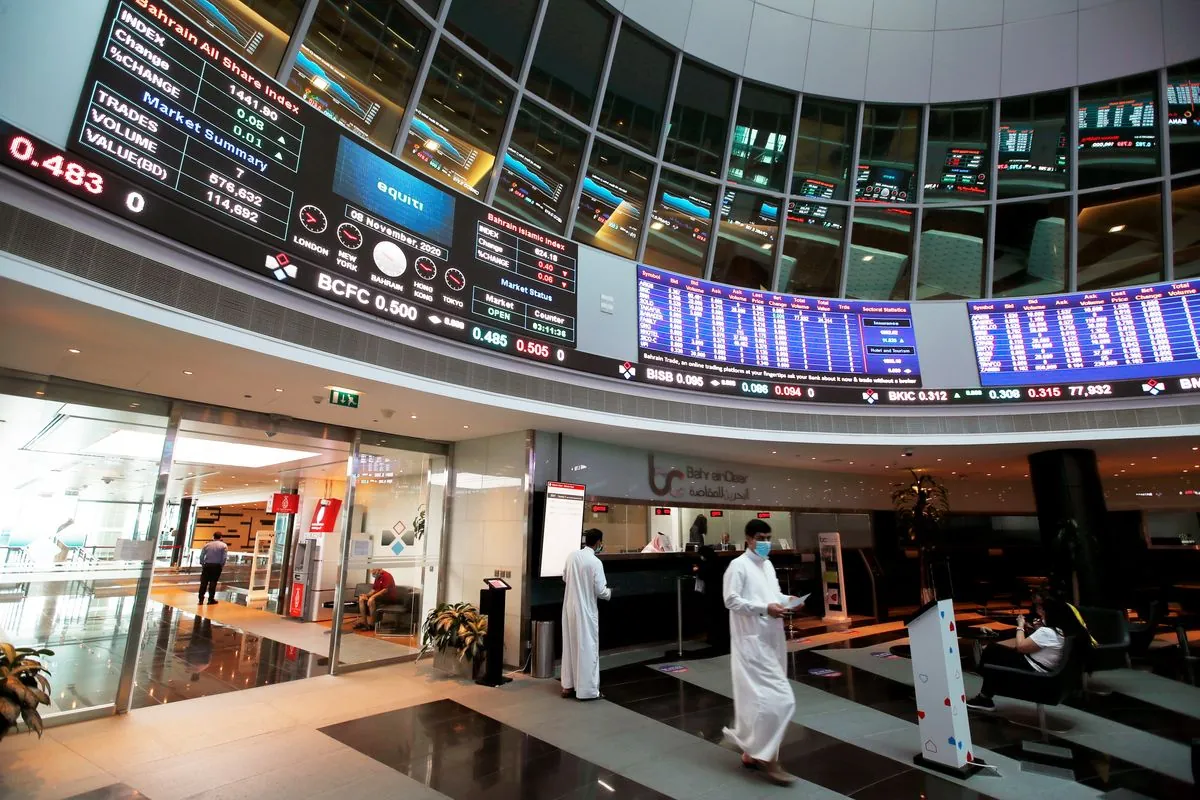Gulf Markets Dip Amid Regional Tensions and U.S. Economic Anticipation
Gulf stock markets face downturns due to Middle East conflicts and upcoming U.S. inflation data. Investors eye potential Federal Reserve rate cut amid ongoing regional humanitarian challenges.

On August 28, 2024, major Gulf stock markets experienced a downturn amid escalating geopolitical tensions in the Middle East and anticipation of a crucial U.S. inflation report. The report, expected to provide insights into a potential Federal Reserve rate cut in September, has kept investors on edge.
The ongoing conflict in the Gaza Strip between Israel and Hamas continues to displace Palestinians, with little progress in ceasefire negotiations in Cairo. The situation has been further complicated by recent cross-border exchanges between Israel and Hezbollah in Lebanon. These events have significantly impacted the region's stability and economic outlook.

United Nations aid operations in Gaza faced severe challenges following Israeli evacuation orders that forced the closure of the main UN operations center. This development has severely hampered humanitarian efforts in the area, highlighting the dire situation faced by civilians caught in the conflict.
"Humanitarian efforts have ground to a halt due to new Israeli evacuation orders forcing the shutdown of our main operations center in Gaza."
The impact of these regional tensions was reflected in the performance of various Gulf stock markets:
- Saudi Arabia's benchmark index dropped 0.7%
- Al Rajhi Bank retreated 1%
- Saudi National Bank declined 1.7%
- Qatar's index fell 0.3%
- Qatar National Bank, the Gulf's largest lender, declined 0.6%
- Dubai's main share index lost 0.2%
- Emaar Properties fell 1.3%
- Abu Dhabi's index showed a slight increase of 0.1%
Investors are keenly awaiting the release of the U.S. Personal Consumption Expenditure (PCE) data on August 30, 2024. This data, considered the Federal Reserve's preferred measure of inflation, is expected to provide crucial insights into potential monetary policy decisions.
Market participants have fully priced in a Federal Reserve easing for September 2024. According to the CME FedWatch tool, there is a 67% chance of a 25-basis-point cut and approximately a 33% chance of a larger 50-basis-point reduction.
The current market situation reflects the complex interplay between regional geopolitical factors and global economic trends. As the Gulf Cooperation Council, established in 1981, continues to navigate these challenges, the resilience of its financial markets will be tested.
The ongoing Palestinian-Israeli conflict, with roots dating back to the mid-20th century, continues to shape the region's economic landscape. The United Nations Relief and Works Agency (UNRWA), established in 1949, faces increasing challenges in supporting Palestinian refugees amidst the current crisis.
As the situation unfolds, the global financial community remains focused on both regional developments and U.S. economic indicators, underscoring the interconnected nature of today's financial markets.


































